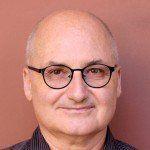David Week responds to Eva Maria Jernsand’s article: Engagement as transformation
If philosophy is the activity of interrogating the question “how shall I live,” politics is the process of interrogating the question “How shall we live (together).” In this article, the engaged PAR process is described as “learning,” but I see it equally as the political process: “engagement as transformation” describes a process which brings stakeholders together (from both inside and outside the community) to discuss problems, make plans, try things out—and in the process get to know, adapt to and cope with each other’s interests.
Engagement as transformation describes a participatory action research project aimed at developing eco-tourism in Dunga, on the shores of Lake Victoria, in Kenya. In this response, I address how the article resonates with my own experience in important ways, challenges or questions my experience, and provides actionable knowledge for practitioners.
In this article, David Week is responding to the article, Engagement as transformation: Learnings from a tourism development project in Dunga by Lake Victoria, Kenya
You are invited to learn more by reading my response HERE. Free 30-day access is available for this article beginning 10 May, 2017.
After you’ve had a chance to read this piece, please share your thoughts, ideas, or experiences with our community in the comments below so we can continue this discussion!
 Abstract summary provided on behalf of the author, David Week
Abstract summary provided on behalf of the author, David Week
David Week has more than 30 years’ experience in the design and management of aid-funded infrastructure projects in the Asia-pacific region. David is executive director of Assai, a professional services firm that provides consulting and evaluation advice across two areas: (1) social infrastructure for development; (2) social change and organizational change. David is also a Postdoctoral Research Fellow at the University of Melbourne, where he is Project Manager for the Assam Project, which works with the State of Assam on construction management education, and research paths to improve the standard of living in rural villages.
- Making Public Deliberations Inclusive with Mixed Methods AR - October 26, 2020
- Participatory action research with Aboriginal Elders: Ngulluk Koolunga Ngulluk Koort project - October 12, 2020
- Bringing the relational self to ART: Interview with Dr. Yvonne Skipper - October 1, 2020
